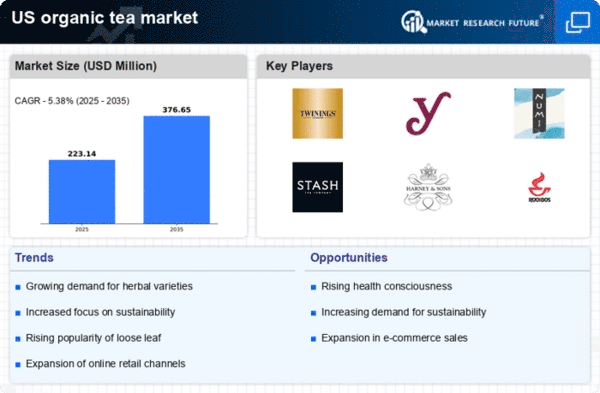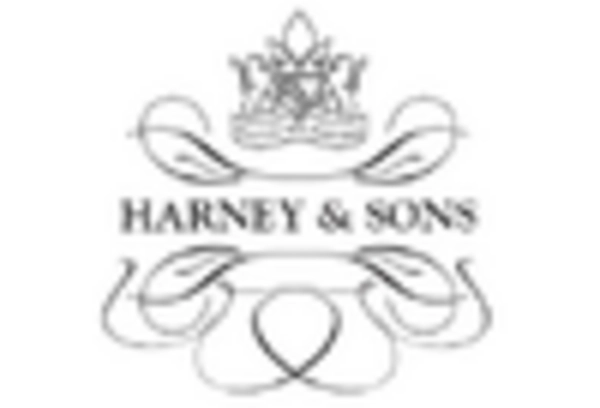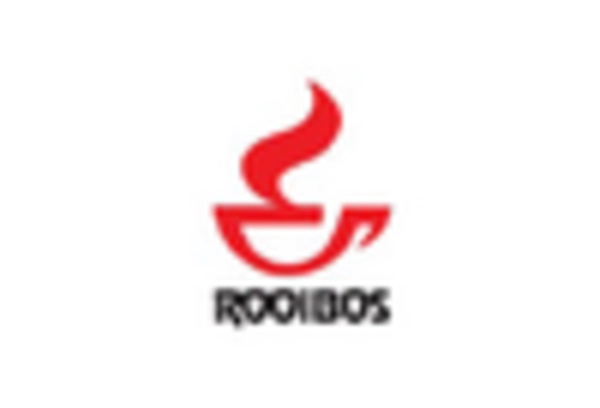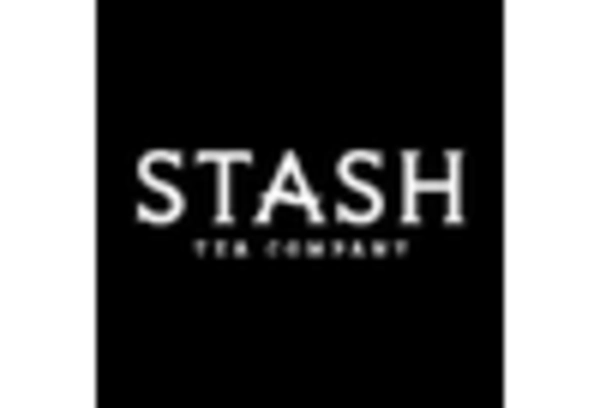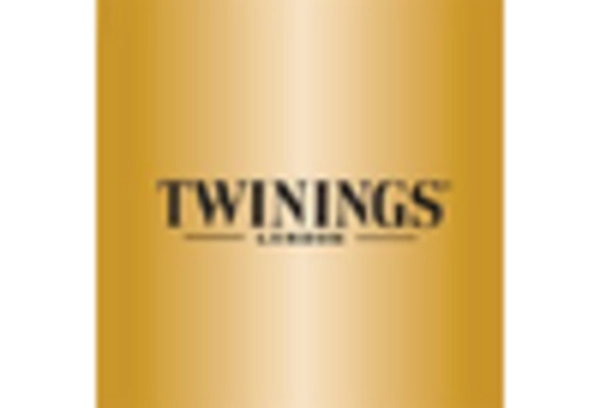The organic tea market in the US is characterized by a dynamic competitive landscape, driven by increasing consumer demand for health-conscious products and sustainable sourcing practices. Major players such as Numi Organic Tea (US), Yogi Tea (DE), and Harney & Sons (US) are strategically positioned to capitalize on these trends. Numi Organic Tea (US) emphasizes innovation in product development, focusing on unique blends and organic certifications, which enhances its appeal among health-oriented consumers. Meanwhile, Yogi Tea (DE) leverages its strong brand heritage and commitment to wellness, often integrating herbal remedies into its offerings, thereby differentiating itself in a crowded market. Harney & Sons (US) adopts a premium positioning strategy, focusing on high-quality ingredients and artisanal production methods, which collectively shape a competitive environment that values quality and authenticity.
Key business tactics within the organic tea market include localizing manufacturing and optimizing supply chains to enhance efficiency and sustainability. The market structure appears moderately fragmented, with a mix of established brands and emerging players. This fragmentation allows for diverse consumer choices but also intensifies competition among key players, who must continuously innovate to maintain market share.
In October 2025, Numi Organic Tea (US) announced a partnership with a local farm in California to enhance its supply chain transparency and sustainability efforts. This strategic move not only strengthens Numi's commitment to organic sourcing but also resonates with consumers increasingly concerned about the origins of their food and beverages. By fostering local partnerships, Numi positions itself as a leader in sustainable practices, potentially attracting a loyal customer base.
In September 2025, Yogi Tea (DE) launched a new line of functional teas aimed at specific health benefits, such as stress relief and digestive support. This initiative reflects a growing trend towards personalized wellness solutions, allowing Yogi to tap into niche markets. The introduction of these products may enhance brand loyalty and expand Yogi's market presence, as consumers seek tailored health solutions in their beverage choices.
In August 2025, Harney & Sons (US) expanded its distribution channels by entering into a collaboration with a major online retailer, significantly increasing its visibility and accessibility. This strategic action is indicative of the ongoing shift towards e-commerce, particularly in the beverage sector. By enhancing its online presence, Harney & Sons can reach a broader audience, potentially driving sales growth in a competitive market.
As of November 2025, current competitive trends in the organic tea market include a pronounced focus on digitalization, sustainability, and the integration of AI technologies in supply chain management. Strategic alliances among companies are increasingly shaping the landscape, fostering innovation and enhancing operational efficiencies. Looking ahead, competitive differentiation is likely to evolve from traditional price-based competition to a focus on innovation, technology, and supply chain reliability. Companies that prioritize these aspects may find themselves better positioned to meet the demands of a discerning consumer base.


